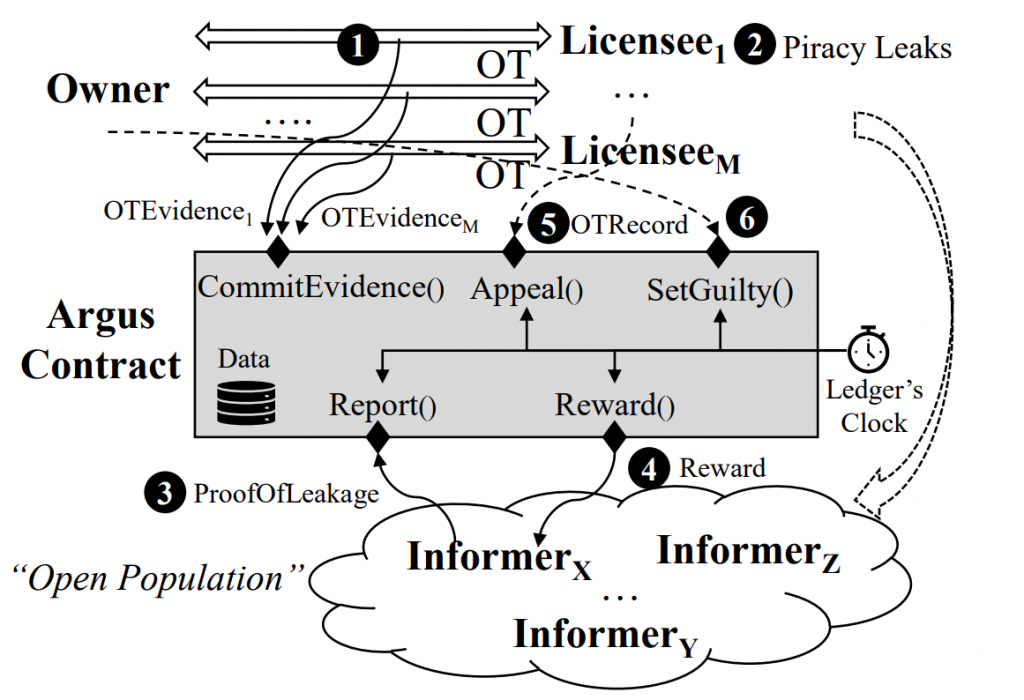Microsoft and Alibaba Researchers Detail Ethereum-Based Anti-Piracy System

Researchers from Microsoft, Alibaba, and Carnegie Mellon have published a paper detailing an anti-piracy system based on blockchain technology.
A group of researchers from Microsoft, Alibaba, and Carnegie Mellon University have published a research paper that speaks of a blockchain-based anti-piracy campaign system called Argus. The system is based on Ethereum and is a fully transparent incentive that is more effective than current anti-piracy initiatives.
Saying that they view the current anti-piracy efforts and challenges as a distribution problem, the researchers propose a network with transparent incentive mechanisms that “consolidate the interest of all roles.” By roles, they refer to various stakeholders, including owners and licensees. Concerning the goals, the paper reads,
“The groundwork of Argus is to formulate the objectives for fully transparent incentive mechanisms, which securely and comprehensively consolidate the different interests of all roles.”
In simplified terms, the mechanism is designed to encourage the open population to report pirated copies to the system. In traditional anti-piracy efforts, this has relied on trusted systems that are based on the good faith reports of stakeholders in the system.
But the Argus system removes trust from the setup, thus making the anti-piracy efforts more effective. The researchers have also stated that the solution has high performance and efficiency, with an off-chain throughput of 82.6 data trades per second per machine. The on-chain cost is roughly equivalent to sending 14 ETH-transfer transactions per report on the public Ethereum blockchain, they add.
The researchers also make a note of their improvements to several fundamental operations, including Sybil-proof incentive function, a commit-and-reveal scheme, and an oblivious transfer scheme.
Microsoft continues blockchain dabbling
This is not the first time that Microsoft has worked with blockchain technology. There have been numerous reports of the company using the technology to implement enterprise-focused solutions.
Among these research and development efforts are a decentralized identity system and an NFT rewards system in collaboration with Enjin. Its Azure Blockchain Services had caused quite a stir in the market when it was first announced, though it shuttered a few months ago in May 2021.
Still, like most big tech companies, Microsoft is being cautious with its examination and use of blockchain-based systems. The company’s president Brad Smith still believes that governments are the ones who should issue currencies and that companies should refrain from doing so.
Disclaimer
All the information contained on our website is published in good faith and for general information purposes only. Any action the reader takes upon the information found on our website is strictly at their own risk.















